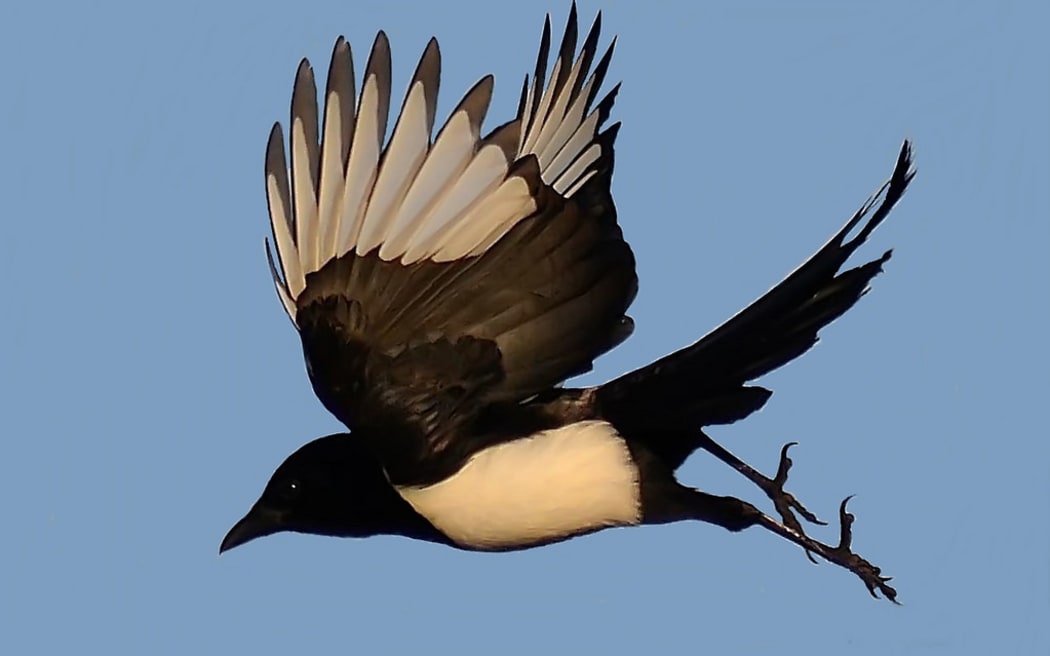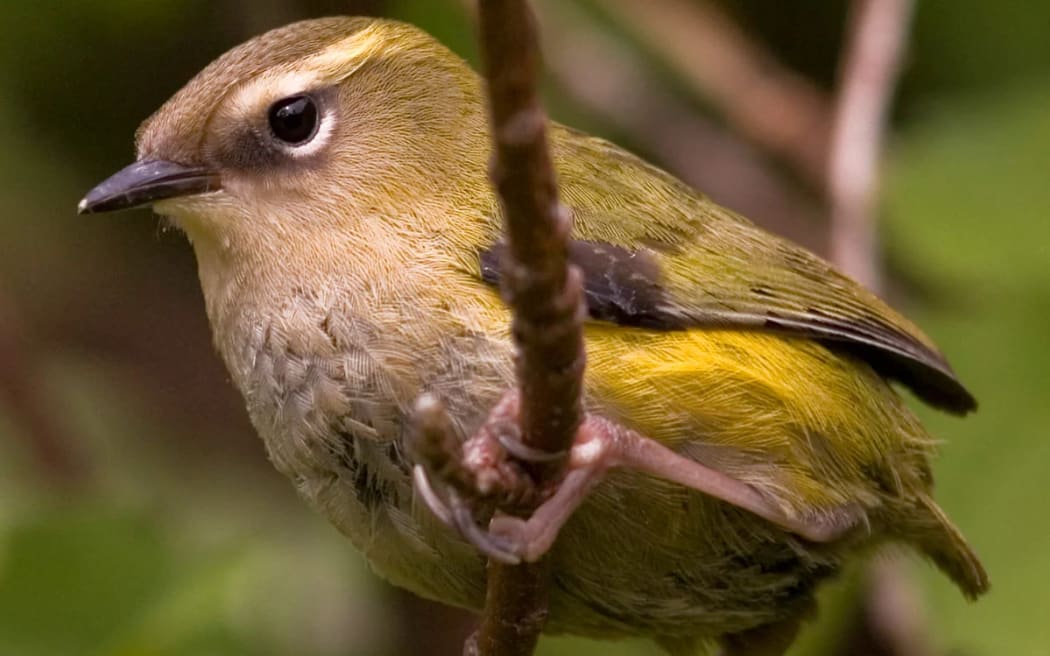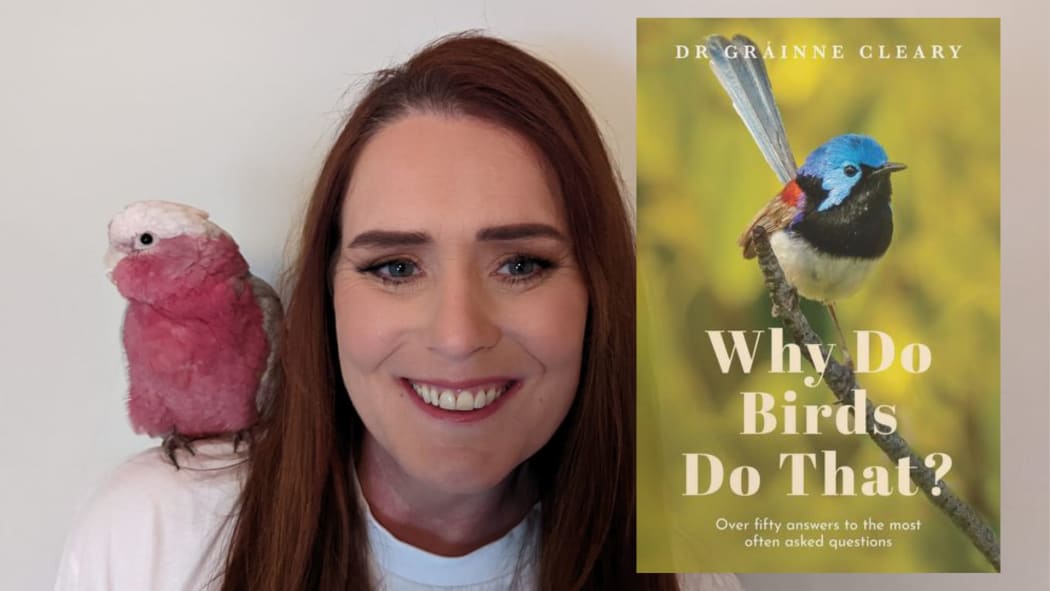Wildlife ecologist Grainne Cleary hails from Dublin, but now lives in Melbourne where she hosts the ABC podcast Good Things Come in Trees.
The Australian magpie – now residing in Aotearoa, too – is Dr Cleary's all-time favourite and also her 'spirit' bird.
"I see myself in them. I'm a little bit too loud, a little bit tall – I'm nearly six foot … nosy, looking at you going 'what are you doing? Where are you going?"

The Australian magpie Photo: [Flickr user Dennis https://www.flickr.com/photos/66235205@N06/15555415090 CC by 2.0]
It may seem like magpies aren't the friendliest creatures, but they don't swoop at passing humans out of nowhere, Dr Cleary tells Jim Mora.
"They see themselves as owners of their territory, so you're on their territory. You're a friendly enemy. You're someone that they need to keep an eye on."
Magpies give a series of warnings before they swoop, she says. The last of these is a clattering of the beak that passersby should listen out for.
"They're highly intelligent and they're trying to warn you."
Like us, birds are also very social creatures, Dr Cleary says.
If one has less vibrant feathers or loses their feathers they're likely to be seen as being sick – a liability – and kicked out of flock.
"Maintaining hygiene and making sure your feathers are looking the best they can send signals to your flockmates that 'yes, I'm in good condition, yes, I'm a strong healthy bird and I can hang out with you."
Birds sing to mark their territory but also to assert themselves as a group, she says.
"Once dawn breaks, you'll have birds singing to mark territories but also to reaffirm bonds after the night of sleeping. They'll sing together to reaffirm 'we are one clan, we're here, we're marking our territory, this is our area and we're happy to be here'."

A female rock wren (Pīwauwau) in the Murchison Mountains Photo: James Reardon
Wrens, such as the 2022 NZ Bird of the Year pīwauwau/ rock wren communicate with their chicks even when they're still inside their eggshell.
"People think how can the bird talk in the egg? Eggs are actually porous, with tiny tiny holes where the oxygen gets out of the chick. Once it's really developed it can actually pipe back to the mum."
"They'll often teach them what we call a 'password', which is a particular song that identifies mum and baby.
Birds express their emotions through their eyes, Dr Cleary says.
"Birds will squint when they're being affectionate. And they'll puff out their beak feathers. This will say 'I'm happy and I'm content'. Birds often mirror each other the way humans do ... they get in synch with each other and throughout the day they'll be checking in with each other."
Dr Grainne Cleary is the author of Why Do Birds Do That?

Photo:

